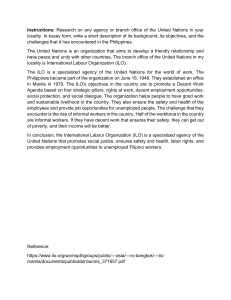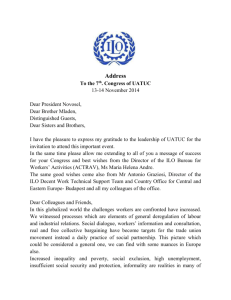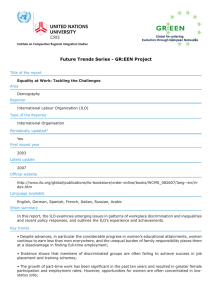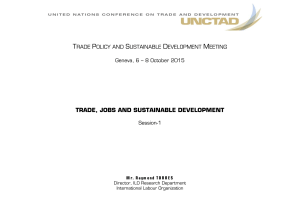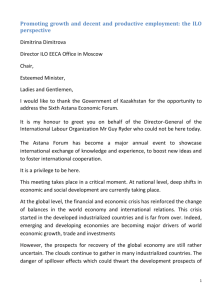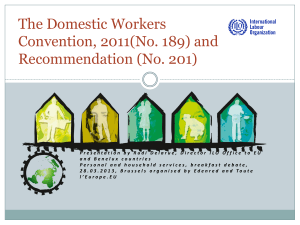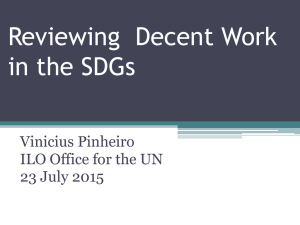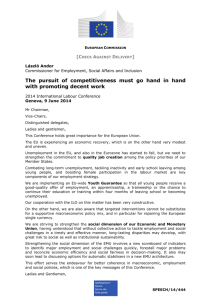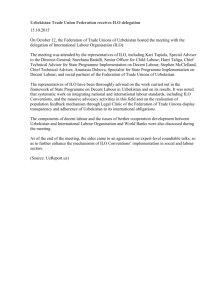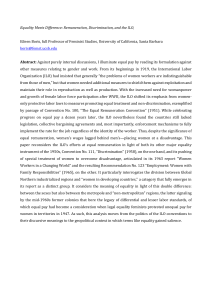ILO - the United Nations
advertisement
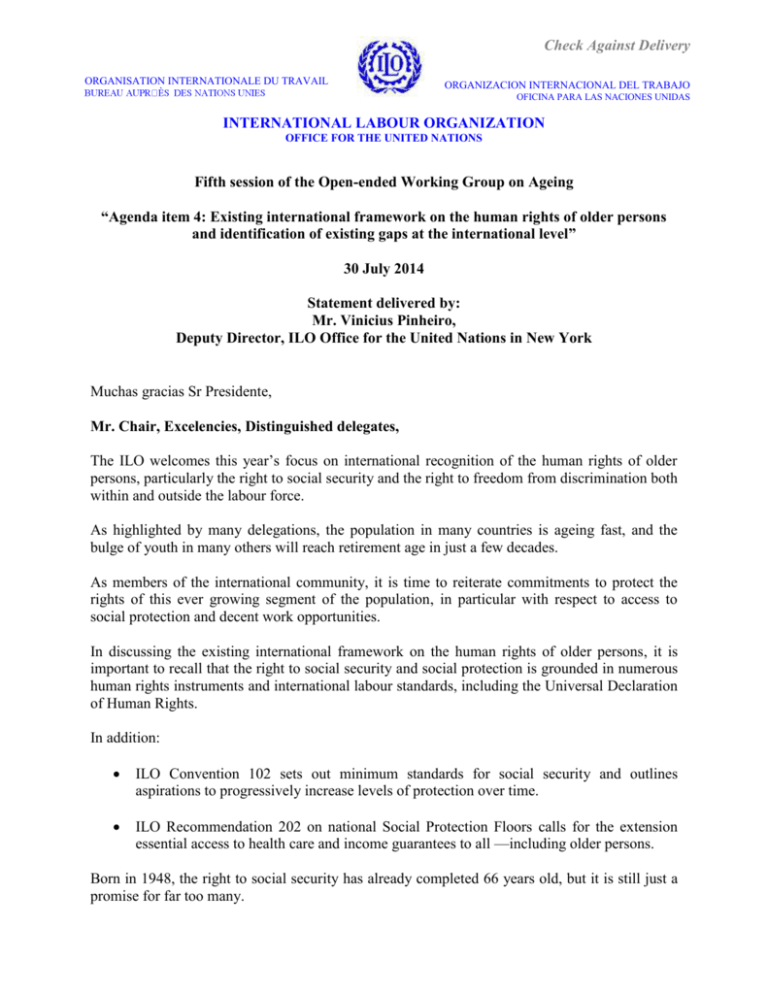
Check Against Delivery ORGANISATION INTERNATIONALE DU TRAVAIL ORGANIZACION INTERNACIONAL DEL TRABAJO OFICINA PARA LAS NACIONES UNIDAS INTERNATIONAL LABOUR ORGANIZATION OFFICE FOR THE UNITED NATIONS Fifth session of the Open-ended Working Group on Ageing “Agenda item 4: Existing international framework on the human rights of older persons and identification of existing gaps at the international level” 30 July 2014 Statement delivered by: Mr. Vinicius Pinheiro, Deputy Director, ILO Office for the United Nations in New York Muchas gracias Sr Presidente, Mr. Chair, Excelencies, Distinguished delegates, The ILO welcomes this year’s focus on international recognition of the human rights of older persons, particularly the right to social security and the right to freedom from discrimination both within and outside the labour force. As highlighted by many delegations, the population in many countries is ageing fast, and the bulge of youth in many others will reach retirement age in just a few decades. As members of the international community, it is time to reiterate commitments to protect the rights of this ever growing segment of the population, in particular with respect to access to social protection and decent work opportunities. In discussing the existing international framework on the human rights of older persons, it is important to recall that the right to social security and social protection is grounded in numerous human rights instruments and international labour standards, including the Universal Declaration of Human Rights. In addition: ILO Convention 102 sets out minimum standards for social security and outlines aspirations to progressively increase levels of protection over time. ILO Recommendation 202 on national Social Protection Floors calls for the extension essential access to health care and income guarantees to all —including older persons. Born in 1948, the right to social security has already completed 66 years old, but it is still just a promise for far too many. Nearly half of all people over pensionable age today do not receive a pension, and for those who do, pension levels are often inadequate to provide the security and dignity to which they are entitled. To address these challenges, as mentioned by various delegations, many countries have recently made efforts to expand the coverage of social protection for older persons, including social insurance and transfers, to guarantee at least a basic income security guarantee for all persons in old age. Many of these efforts are a response to the UN call to establish nationally-defined Social Protection Floors, a call replicated in the latest iteration of the Sustainable Development Goals proposed by the Open Working Group. Mr Chair, In addition to social protection, the right of older persons to decent work opportunities, free from any form of discrimination, is also present in many international agreements. ILO Recommendation 162 includes age as a form of discrimination, and calls upon members to prevent discrimination in employment with regard to older workers and to promote equality of opportunity and treatment for all workers, whatever their age. ILO Recommendation 166 states that age should not constitute a valid reason for termination. Attitudes and prejudice with respect to older people are still major obstacles to opening up job opportunities for this important group. Additional efforts should be taken to promote the enactment of anti-discrimination laws, increase public awareness and sensitivity, and adapt the workplace environments and promote relevant skills for older persons. The ILO stands ready to continue cooperating with member states to help extending social protection, in particular social protection floors, for older persons and in enhancing decent work opportunities to those who want to work. I thank you!
